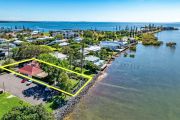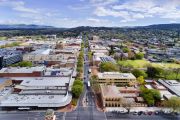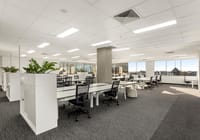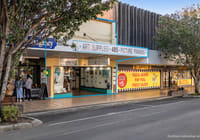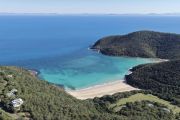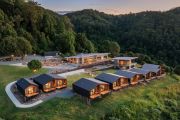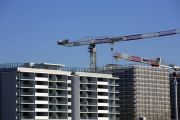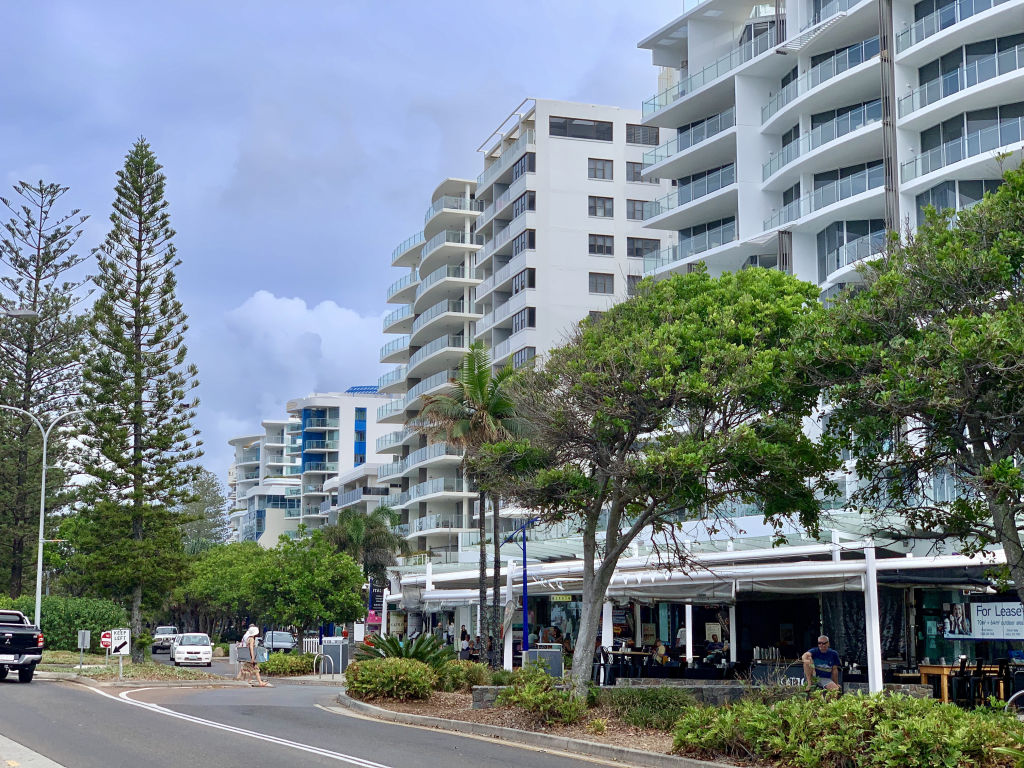
Green shoots start to appear in Sunshine Coast commercial markets
The Sunshine Coast’s retail sector has been hit hard by the COVID-19 crisis, with higher vacancy rates and lower rents on the cards, but there are some green shoots as agents are starting to see inquiries rebound – in some cases back to where they were before the pandemic.
Up to 15 per cent of discretionary retailers might not re-open once the pandemic has passed, with many businesses struggling even before the coronavirus crisis, CBRE Sunshine Coast director Brendan Robins said.
“This will mean lease vacancy levels will increase across the country, particularly in large shopping centres with higher rents,” he said.
Retail rents could decline as much as 20 per cent after the pandemic, with capital values also set to fall.
High-level expenditure on essential items at supermarkets and pharmacies would continue, and Mr Robins said the cafe and restaurant trade would pick up as restrictions lifted, but it could be two years before normal trade levels resumed.
Colliers International Sunshine Coast managing director Nick Dowling said demand for retail investment properties had fallen since the start of the pandemic unless leased to an anchor tenant not affected by government restrictions.
“We have managed to get a few retail sales done during the period but there have been many more either put on ice or cancelled,” he said.
“The biggest challenge we now face with all investments, but retail in particular, is where yields might shift to particularly for secondary stock.”
However, there has been a reasonable amount of opportunistic retail inquiry with potential tenants looking for significantly reduced rental deals and incentives, Colliers retail expert Daniel Vella said.
“The level of retail leasing inquiry has in fact increased to levels greater than pre-COVID currently. There is a renewed confidence of a positive future partly due to government stimulus and lessor support.”
Matthew Gould, JLL Sunshine Coast valuations advisory director, said retail has suffered significantly with the required business closures and lack of pedestrian traffic from both the local and tourism markets severely impacting trade.
“On the Sunshine Coast, most landlords and tenants are having healthy dialogue about moving through the lockdown and out the other side,” he said.
Mr Gould said the expectation from commercial agents was for a busy six months, however, actual transactional activity was likely to be low with agents concentrating on communicating and working with owners, landlords and tenants for when market conditions improve.
“This may include repositioning of assets, as tenants and businesses adapt to new trading environments,” he said.
“New prime sale listings are expected to be limited until the end of the year, however, potentially there may be an increase in leasing transactions. At what rental level, however, is yet to be seen, particularly for retail premises.”
Meanwhile, sales inquiry for smaller industrial units and well-leased investments in the industrial market have remained strong.
“We have managed to conclude about 10 industrial unit transactions over the past month, as well as contract seven industrial lots,” Colliers industrial expert Ben Flower said.
“We are still getting strong inquiry from investors looking at industrial investments but the covenant, location and building quality need to be right in order to get serious offers.”
However, industrial leasing activity has slowed and Mr Flower said the biggest challenge was getting tenants to commit to new leases instead of holding off.
“Incentives haven’t changed through the period, however, we are starting to introduce stepped rents in an attempt to get tenants to commit soon rather than hold off,” he said.
CBRE Sunshine Coast advisory and transaction services director Glen Grimish said sellers were holding onto their assets until conditions improved.
Landlords were currently reducing rents and offering incentives to attract and retain tenants, he said.
But the sector’s future was bright, with Mr Grimish predicting the problems facing large-scale retailers in shopping malls would present opportunities for industrial property owners.
“Industrial facilities will be used more and more by businesses which operate through an online platform,” he said.
“We’re seeing more small businesses move from what was perhaps a home-based operation to run a pre-order and delivery network from industrial-style premises.”
Activity has continued in the corporate office sector, despite the COVID-19 pandemic forcing many people to work from home.
Investor interest for well-leased office property remained strong but with an increased focus on the security of the lease, according to CBRE Sunshine Coast office and retail services office manager Ryan Parry.
However, he said owner-occupiers were less active, opting to wait until business returned to some sort of normality.
While Mr Parry expected face rents would return to previous levels after the pandemic, he predicted post-COVID-19 tenants would focus on keeping overheads at modest levels, while landlords would become more creative in offering incentives to secure and retain tenants.
Mr Gould said with many employees working from home, smaller office tenancies and those in serviced-office environments were the most adversely affected by the lockdown.
“Being a smaller regional city compared to Brisbane and having larger workplace floor-space ratios has allowed some businesses to maintain an office presence with social distancing measures and staggered worker entry each week being implemented,” he said.
